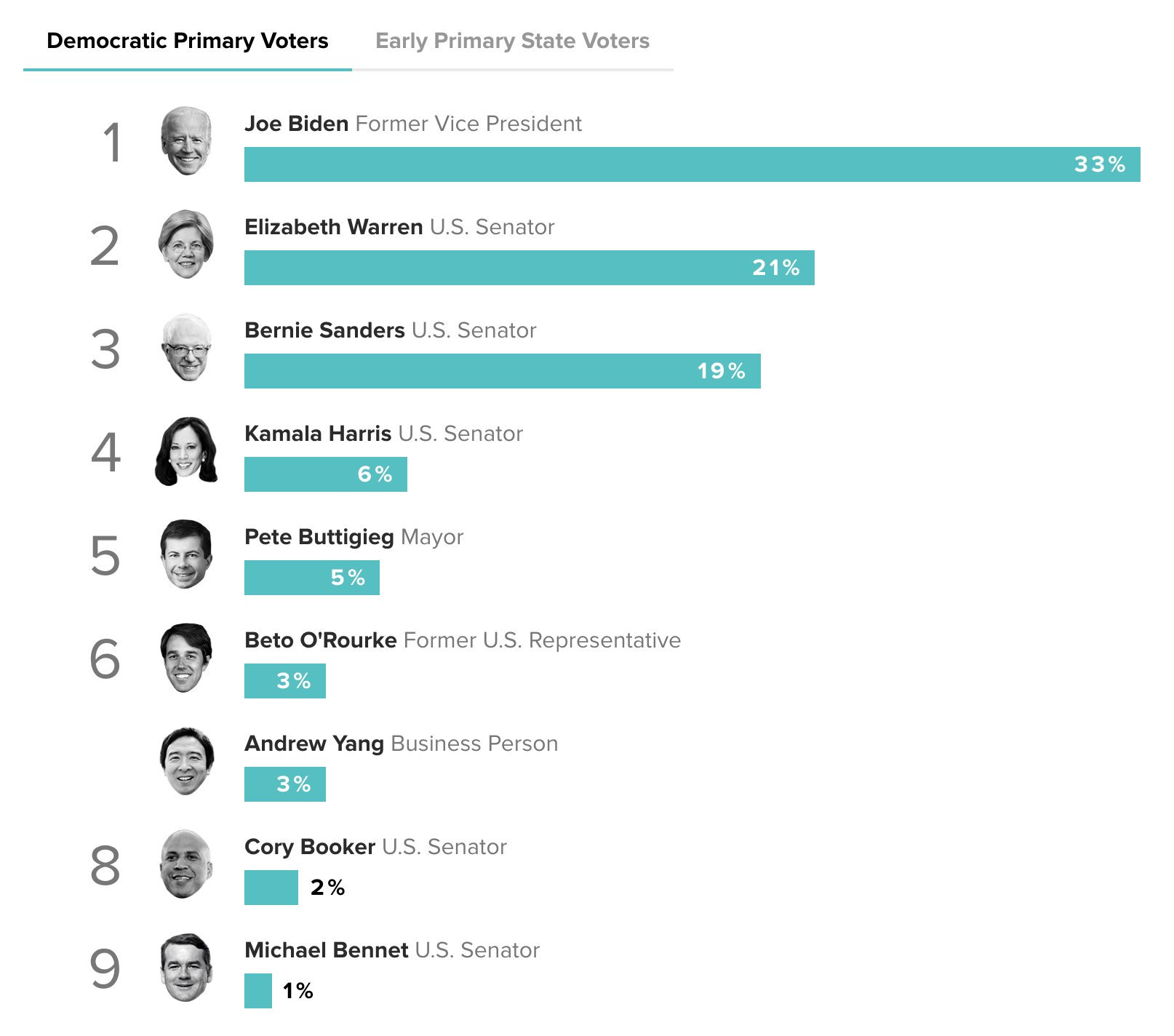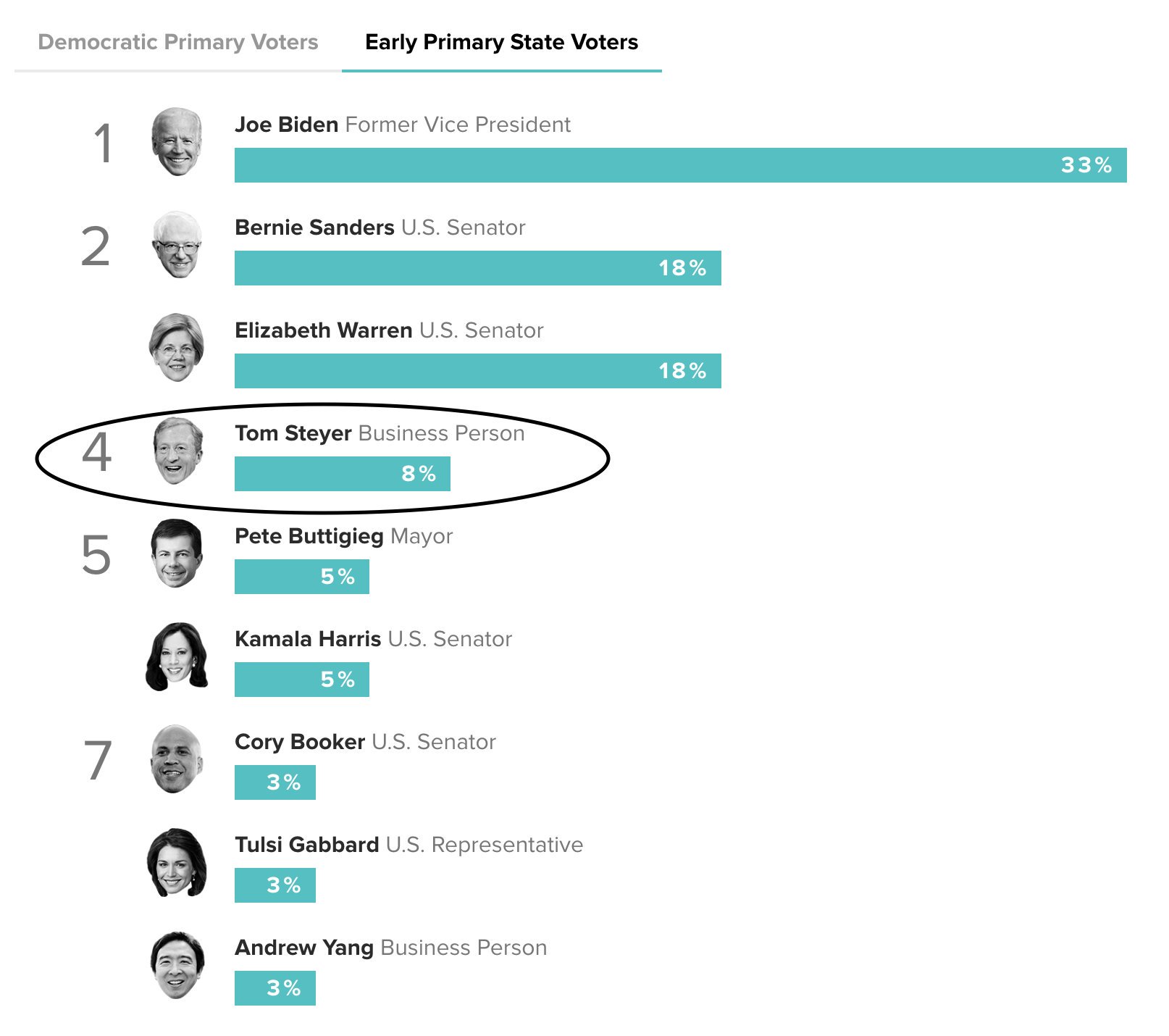Epistemic status: speculative
Andrew Yang understands AI X-risk. Tom Steyer has spent $7 million on adds in early primary states, and it has had a big effect:


If a candidate gets more than 15% of the vote in Iowa (in any given caucus), they get delegates. Doing that consistently in many caucuses would be an important milestone for outsider-candidates. And I'm probably biased because I think many of his policies are correct, but I think that if Andrew Yang just becomes mainstream, and accepted by some "sensible people" after some early primaries, there's a decent chance he would win the primary. (And I think he has at least a 50% chance of beating Trump). It also seems surprisingly easy to have an outsize influence in the money-in-politics landscape. Peter Thiel's early investment in Trump looks brilliant today (at accomplishing the terrible goal of installing a protectionist).
From an AI policy standpoint, having the leader of the free world on board would be big. This opportunity is potentially one that makes AI policy money constrained rather than talent constrained for the moment.

In the old version of the report, in maybe a couple of sentences, I incorrectly conflated the status of Keynesianism in general with Post-Keynesian in particular. In reality, New Keynesianism is accepted whereas Post-Keynesian ideas are heterodox, as I describe in the above comment. I have already updated the language in revisions. But this error of mine didn't matter anyway because I wasn't yet judging politicians for their stances on economic stimulus bills (although it is something to be added in the future). If I had been judging politicians on Keynesian stimulus then I would have looked more carefully before judging anything.
If Post-Keynesian ideas are correct, that could change a lot of things because it would mean that lots of government spending all the time will stimulate the economy. However, I am pretty sure this is not commonly accepted.
I am glad you agree on Drive vs OneDrive.